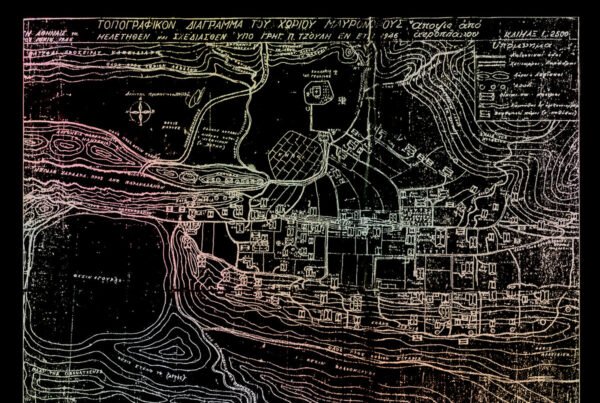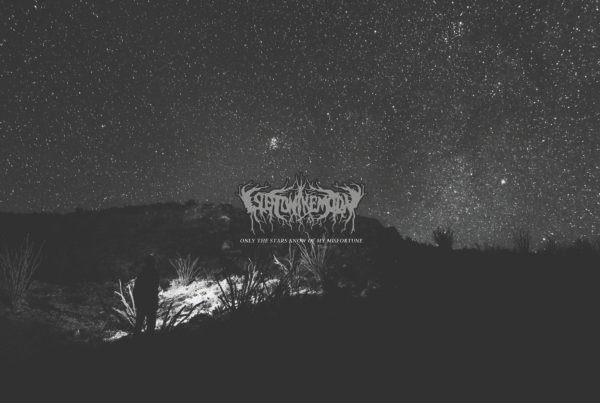You know how Agent Smith in The Matrix can commandeer bystanding avatars, effectively cloning himself to wage war against Neo and his friends who rebel against the Sentinel machines? Remember how the bodies and faces would contort, stretch, and twist until the visage of a clean-cut, stern Hugo Weaving was all that was left? Or how about when the agents would take a more direct approach and thrust their hands into the body of someone with the aim of corrupting who they were – their forms awash with molten, metastasizing metal as if being biologically hacked and mutated – until they became yet another Smith?
That is how this album feels.
Even after listen after listen after listen, it’s hard to properly encapsulate the feeling Xythlia‘s music inhabits. It’s one of those ‘you just have to listen’ kind of albums, but uh…this music clearly isn’t for everyone, so I guess a large part of this review can also serve as a warning. Let’s start on the ground floor – Xythlia is a one-man band. Literally. One man did everything here, short of the band logo and cover art (even the mixing and mastering, which is top notch to my ears). That one man is Nick Stanger, who you may know from atmo-black metal band Ashbringer. He’s a prolific-ass dude as his personal Bandcamp can attest to, and it’s here that he may have laid out his most extreme, uncompromising release yet.
Immortality Through Quantum Suicide is unlike anything else I’ve heard this year, and very much up there in terms of all-timers. At every turn, it seems to rip and tear a hole through space-time with infinite rage and suffering, one that can’t be conveyed in our plane of existence. In a couple words, this is grinding, technical death metal, but it feels altogether more extreme than anything those particular words can conjure, even together. There’s heavy, and then there’s Xythlia.
From “Death Unyielding” to “Fester in the Nether”, everything has such a dizzying pace. Don’t let the song titles that sound like they could be the results of ad-libs by Metal Archives forum posters deceive you. This is poetry – the bleakest, most boundlessly painful poetry you’ve heard. The more lyrics you hear, the more tragic and unnerving the story becomes. This album depicts the cruelest death of all – the undeath.
‘Circumcision by 1000 cuts
Blood pours, spewing
It appears I’ve made a mess again
Smashing my head to numb the pain
How could I be so unstable
I am fucking screaming in pain
Two doors, one outcome
I survive every fucking time
As the universe rots, I remain‘ – “Schrödinger’s Foreskin“
Immortality rends our protagonist, robbing them of an end even as they witness untold and incomprehensible destruction on a galactic level. With every plague that fells entire races of beings comes an infernal scream from their vacuous mouth, beseeching any entity for an expiration – none hear it. All that exists is the invisible pull of the cosmos dragging the doomed through wormholes only to be subjected to unfathomably catastrophic phenomenons of violence that only torture our main character.
Instrumentally, this album is cacophonous and ominous at its most coherent. At the near-constant blistering pace that seems to boil skin off the bone, it’s pandemonium incarnate. As Stanger sings at one point, ‘the place you call hell, I call home‘, and that is right where Xythlia is comfortable. Throughout this entire 23-minute tirade of an album, you’ll hear dog-yelp guitar squeals, distress-call static and noise, inhuman bellows and screams for vocals, and the most intense drums I’ve heard in quite a while. Full disclosure, they are programmed drums (I find it hard to believe any person could achieve much of the frantic hand- and footwork required to play these songs, especially at length), but much like the machines of our favorite films, they’re only programmed to kill.
You can count on one hand – even if you lost a digit or two in a fireworks accident – the amount of times that this album relents. It’s short, which is likely why everything feels so unreal in its speed and execution, but brutality and being fast only gets you so far, and Xythlia reaches for the stars you can’t even see through the Hubble Space Telescope. Even at a pace that could atomize your bones, there’s something refined in Stanger’s musicianship and writing. There’s progressive toying with rhythms; creative metering to make sure every lyrical syllable, guitar strum (or fret tap), and drum slam has a place; and it’s all done at a BPM that’s borderline incomprehensible to human sensibilities.
Listening to Immortality Through Quantum Suicide is like having all the skin and meat on your head radiated off only for your skull to be used as a chalice for a cosmic abomination to drink the oceans of entire planets from. It’s like being lobotomized with a drill dipped in acid – the hallucinogenic or corrosive agent? Your call. It’s barbarous and sick, truly causing you to empathize with our deathless, tormented lead as much as is legally and corporeally allowed. It’s a bottomless pit of stabbing guitars, gnashing drums, and screams grieving for a white light that won’t ever come, and somehow it stands well above the rest in terms of comprehension and accomplishment.
Again, this album is not for everyone. You’ll either love it like I do, or dismiss it for any number of reasons, all valid to be honest. It bullies the senses, grabbing you by the throat and bisecting you right down the middle before tossing your halves in completely opposite directions, only for you to be helplessly, acutely aware of every single inch they drift away from each other. Above all, it’s a supremely masterful take on a technical genre that needed something profound to revitalize it in a big way, and as long as there’s people like Nick Stanger around, maybe the genre will enjoy its own form of immortality. Just tread lightly – Xythlia provides more than enough heaviness anyway.






